Journal Boards
Honorary Editorial Board

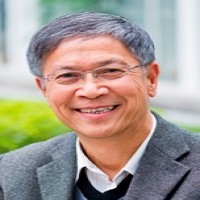
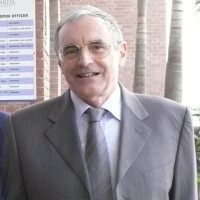
René LOZI is emeritus Professor at University Cote d’Azur, Dieudonné Center of Mathematics, France. He completed a PhD in 1975 and the French State Thesis (on chaotic dynamical systems) under the supervision of Prof. Rene Thom (Fields medalist) in 1983.In 1991, he became Full Professor at University of Nice and IUFM (Institute for teacher trainees). He has served as Director of this institute (2001-2006) and as Vice-Chairman of the French Board of Directors of IUFM (2004- 2006). He is a member of several editorial boards of international journals. In 1977, he discovered a particular mapping of the plane having a strange attractor (now, commonly known as "Lozi map"). Nowadays, his research areas include complexity and emergence theory, dynamical systems, bifurcations, control of chaos, cryptography based on chaos, and recently memristors (physical devices for neurocomputing) and artificial intelligence. He is working in those fields with renowned researchers from many countries. He received the Dr. Zakir Husain Award 2012 from the Indian Society of Industrial and Applied Mathematics during the 12th biannual conference of ISIAM at the University of Punjab, Patialia, (India) in January 2015. He received the C.S. Hsu Award 2024 for distinguished scholars in Nonlinear Dyanamics and Control, issued annually by the Nonlinear Science and Complexity Conferences Series, in August 2024 at the Sichan university of Yibin, China. Since August 2023, he is Vice-President of the International Society of Difference Equations.
Editor-in-Chief
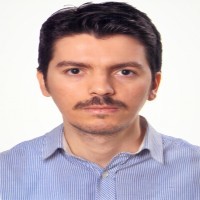
Dr. Akif AKGUL was born in Izmir, Turkey. Dr. AKGUL received his B.S. degree in Electronics-Computer Education from Kocaeli University in 2009 and in Electrical-Electronics Engineering from Sakarya University in 2013, M.S. and Ph.D. degrees from Sakarya University in 2011 and 2015, respectively, in Electronics-Computer Education and Electrical-Electronics Engineering. His Ph.D. thesis work was on chaos-based cryptology. He has been to The Institute of Electronics, Communications and Information Technology (ECIT) of Queen's University Belfast, United Kingdom in 2015 as a Visiting Researcher. His current research interests include random number generators, cryptology, data hiding, blockchain, IoRT, chaos-based engineering applications. Currently, he is Associate Professor at the Department of Computer Engineering, Faculty of Engineering, Hitit University, Turkey, where he has been involved in projects concerning the study of chaos-based applications.
Associate Editors
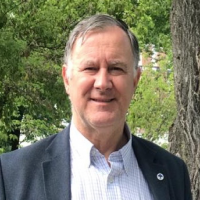
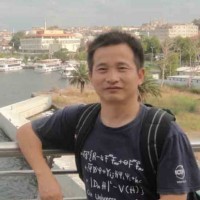
Dumitru Baleanu, Department of Computer Science and Mathematics, Lebanese American University, Beirut, Lebanon, e-mail:dumitru.baleanu@lau.edu.lb .
Dumitru is a Professor at the Department of Computer Science and Mathematics, Lebanese American University, Beirut, Lebanon. Dumitru got his PhD from the Institute of Atomic Physics in 1996. His fields of interest include the fractional dynamics and its applications, fractional differential equations and their applications, discrete mathematics, image processing, bio-informatics, mathematical biology, mathematical physics, soliton theory, Lie symmetry, dynamic systems on time scales, computational complexity, the wavelet method and its applications, quantization of systems with constraints, the Hamilton-Jacobi formalism, geometries admitting generic and non-generic symmetries.
Dumitru is a pioneer of the fractional variational principles and their applications in control theory. Dumitru wrote for the first time the fractional Euler-Lagrange equations for fields in the seminal paper entitled “Lagrangian formulation of classical fields within Riemann-Liouville fractional derivatives”, by Dumitru Baleanu and Sami I. Muslih, Physica Scripta ,72 ( 2-3) 119-121(2005). Besides, in the following paper entitled “A Hamiltonian formulation and a direct numerical scheme for fractional optimal control problems”, by Agrawal Om Prakash and Baleanu Dumitru, Journal of Vibration and Control 13 (9-10),1269-1281, we firstly formulated the fractional optimal control problems in terms of Riemann-Liouville fractional derivatives.
Dumitru is one of the co-authors of the seminal paper entitled “Anomalous diffusion expressed through fractional order differential operators in the Bloch-Torrey equation”, by Richard Magin, Dumitru Baleanu, Abdullah Osama and Zhou Xiaohong Joe, Journal of Magnetic Resonance 190 (2), 255-270 (2008),which plays nowadaws a fundamental role within diffusion weighted MRI.
Dumitru had an important role in developing the non-singular operators with Mittag-Leffler kernels and the related modified version as well as their applications in real world phenomena. Also, Dumitru introduced, for the first time, the geometrical meaning of the fractional Mittag-Leffler kernel in the complex domain. The results were published in the paper entitled “Modified Atangana-Baleanu fractional differentıal operators”,by Rabha W. Ibrahim and Dumitru Baleanu,Proceedings of the Institute of Mathematics and Mechanics, National Academy of Sciences of Azerbaijan Volume 48, Special Issue, 2022, Pages 56–67.
We know that dealing with nonsingular kernels it is a very difficult task mainly because their unsolved restrictions at origin. However, in the paper entitled “On an extension of the operator with Mittag-Leffler kernel”, by Mohhamed Al-Refai and Dumitru Baleanu Fractals, 30(51), 2022, Article number 2240129, it was first time formulated an interesting extension of the fractional operator involving the Mittag-Leffler kernel which admits integrable singular kernel at the origin. Besides, new solutions of the related differential equations were reported together with some perspectives from the modelling viewpoint.
Dumitru is co-author of more than 25 books published by Springer, Elsevier and World Scientific. His H index is 108. Dumitru won the following prestigious awards:
- 2023- Award Grigore Moisil given by the Romanian Academy
- 2020-Best Research Award, given by the ITSR Foundation Award 2020 (organized by Institute of Technical and Scientific Research, India) and presented online on September 13th, 2020.
- 2020- Distinguished Researcher Award, Given by the Jaipur Mathematical Society and presented during the 3rd International Conference on Mathematical Modelling, Applied Analysis and Computation (ICMMAAC-20),7-9 August 2020 at JECRC University,Jaipur, India
- 2019-Award for 20 years of successful scientific activity in the field of fractional calculus and its applications by Istanbul Gelisim University, Turkey
- 2019- Obada Prize. The Obada-Prize recognizes and encourages innovative and interdisciplinary research that cuts across traditional boundaries and paradigms. It aims to foster universal values of excellence, creativity, justice, democracy, and progress and to promote the scientific, technological and humanistic achievements that advance and improve our world.
- 2018-ICFDA2018 Award:Innovation in Fractional Calculus. This award is granted to inventors of new patents which address major problems and have a great perspective by use of fractional calculus in real World appplications
Dumitru is the Editor in Chief of Progress in Fractional Differentiation and Applications and he is a Co-editor in Chief of Discontinuity, Nonlinearity and Complexity. Dumitru is member of several editorial boards of journals inxed in Scopus and SCI.
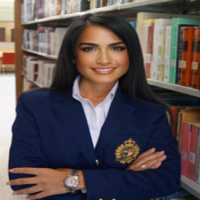
Yeliz Karaca is an associate professor of mathematics, and a senior research professor at the University of Massachusetts Chan Medical School (UMASS), USA; collaborator at Massachusetts Institute of Technology (MIT), USA. She received her Ph.D. degree in Mathematics with the dissertation entitled “Constituting an Optimum Mathematical Model for the Diagnosis of Multiple Sclerosis” from Marmara University, Türkiye in 2012. Among the other awards she has been given, she was also granted the “Cooperation in Neurological Sciences and Support Award” by Turkish Neurology Association as the first mathematician in Türkiye. She also holds a "medical card" as the only mathematician entitled that sort of card. She also holds a medical card as the only mathematician entitled for it. Furthermore, she received the Outstanding Young Scientist Award in 2012 and Best Paper Awards in her specialized discipline in 2012, 2014, 2016, 2017, 2019, 2020 as well as 2023, among the other awards in different categories. Another award of hers is Outstanding Reviewer Award (Mathematics Journal, MDPI) in 2021.
As for some publications, Dr. Karaca has a book entitled "Computational Methods for Data Analysis" published in 2018 by De Gruyter. Another publication is an edited book named "Computational Science and Its Applications" – Lecture Notes in Computer Science (ICCSA 2020, with series 1-7) by Springer. Her edited book is entitled "Multi-Chaos, Fractal and Multi-Fractional Artificial Intelligence of Different Complex Systems", published by Elsevier in 2022. Another work is entitled Computational Science and Its Applications – Lecture Notes in Computer Science (ICCSA 2023, with series I-9) by Springer. Another book is entitled "Intelligent Fractal-Based Image Analysis: Applications in Pattern Recognition and Machine Vision", published by Elsevier in 2024. Besides these, another publication under publication process is a single-authored book, named "Computational and Mathematical Neuroscience, Biology & Medicine: Clinical and Medical Applications" by Wiley-IEEE Press.
She is the Editor-in-Chief of the book series named “Systems Science & Nonlinear Intelligence Dynamics” (https://www.worldscientific.com/series/ssnid) by World Scientific. She has been acting as an editor, guest editor and associate editor in many different issues in SCI indexed journals such as IEEE Access; Electronics, MPDI; International Journal of Big Data and Analytics in Healthcare (IJBDAH); ICCSA2020-Lecture Notes- Springer; Fractal AI-Based Analyses and Applications to Complex Systems, Fractals- World Scientific among others. In addition, she is the leading guest editor of several special issues, one of which is "Fractal-Fractional AI-Based Analyses and Applications to Complex Systems" (Part I, II, III, IV) at Fractals Journal, World Scientific. Some of the other special issues she has been running are as follows: “Advanced fractional calculus, differential equations and neural networks: analysis, modelling and numerical computations", at the Physica Scripta Journal – IOP science; “Advanced Fractals and Fractional Calculus with Science and Engineering Applications: Computing, Dynamics and Control in Complex Systems" (Part I, II) at the Applied Mathematics in Science and Engineering Journal, Taylor&Francis and "Dynamic Diseases: Mathematical Informed Expert and Knowledge Computing Technology-based Computational Medicine in Complex Systems", at Frontiers in Bioscience-Landmark.
Dr. Karaca has also been acting as a chair, co-chair, member of Advisory Scientific Committee and special session organizer of international conferences some of which are as follows: Image Processing, Wavelet and Applications (IWW), International Conference on Computational Science and Its Applications (ICCSA), International Conference on Nonlinear Science and Complexity (ICNSC), The International Conference on Fractional Differentiation and Its Applications (ICFDA), International Conference on Intelligent Information Processing (IETI ICIIP ) and International Conference on Applied and Industrial Mathematics (ICAIM).
Among her affiliated organizations in which she has active scientific roles and involvement with projects are Organization for Women in Science for the Developing World (OWSD); Complex Human Adaptive Organizations and Systems (CHAOS)- University of Perugia, Italy; International Engineering and Technology Institute (IETI) and Institute of Electrical and Electronics Engineers (IEEE, senior member). She is also a member of many associations and charities. She also has one charity she established herself and she is acting as the co-founder and project manager at Yönetim Araştırmaları Derneği (YÖNAD), which is a charity for Management Research, conducting scientific and industry-related projects, seminars, academic work and conferences.
Her research interests include complex systems sciences with applications in various terrains, applied mathematics, advanced computational methods, AI applications, computational (-algorithmic) complexity, fractional calculus, fractals and multifractals, stochastic processes, different kinds of differential and difference equations, discrete mathematics, algebraic complexity, complexity science, wavelet and entropy, solutions of advanced mathematical challenges, mathematical neuroscience and biology as well as well as advanced data analysis in medicine and other related theoretical, computational and applied domains.
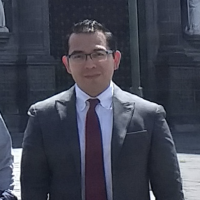
Jesus M. Munoz-Pacheco is a tenured professor in the Faculty of Electronics Sciences at Benemerita Universidad Autonoma de Puebla. He founded and currently leads the research group Fractional-order Systems and Nonlinear Circuits. He has published about 150 scientific works on chaotic systems and fractional-order calculus. He is ranked in the Top 2% global scientist list published by Stanford University-Elsevier in both the Single year list and the Career list from 2020 to 2025. Dr. Munoz-Pacheco is a senior member of the National System for Researchers by Conahcyt and the Government of Mexico. Dr. Munoz-Pacheco is also an Associate Editor for Frontiers in Physics, IJNM-Wiley, Frontiers in Applied Mathematics and Statistics, Chaos Theory and Applications, and so on.
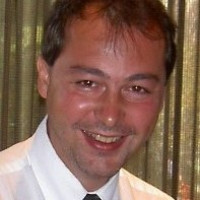
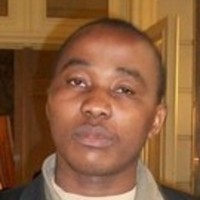
Sifeu Takougang Kingni was born in Douala, Cameroon, in 1984. He received the M.Sc. degree in Physics (speciality: Mechanics) in 2008 from the University of Yaoundé I, Cameroon. He received in 2014 a joint Ph.D. degree in Physics (speciality: Mechanics) between the Vrije Universiteit Brussel, Brussels, Belgium and the University of Yaoundé I, Cameroon. His research interests include nonlinear dynamics of semiconductor lasers, electronics circuits, optomechanics, fluid mechanics systems, synchronization of chaotic systems and secure communications.
Professor Vinod Patidar is a Fellow of the Executive Leadership Academy (ELA) at University of California Berkeley, the Institution of Engineering and Technology (IET) and the Institution of Electronics and Telecommunication Engineers (IETE) of India. He has around 24 years (19 years post PhD; 9 Years as Full Professor) of rich experience in teaching, research and administration. An internationally acclaimed and awarded researcher in the areas of Nonlinear Dynamics and Chaos Theory, Modelling and Simulation, Chaos-based Cryptography and Image Encryption, steganography, and DNA Cryptography. Prof. Patidar has around 95 publications and over 4670 citations to his credit with an individual h-index of 23 and i10-index of 38. One of his papers has also received MOST CITED PAPER AWARD for Image and Vision Computing (Elsevier) journal and four of his research papers on ‘chaos-based cryptography’ have remained in the Sciencedirect top 25 lists of most downloaded articles published in the respective journals during various periods.
He has been a Visiting Scientist at the Helmholtz Institute for Supercomputational Physics, University of Potsdam, Germany and the International Centre for Theoretical Physics (ICTP), Trieste.
He has visited Germany, Italy, Greece, Canada, Nepal, Brazil, South Korea and United Kingdom for various academic/research purposes. He has been awarded various research & travel fellowships /grants/awards like DST Young Scientist Research Grant, SERB-MATRICS Grant, COSTED Travel Fellowship, CIMPA-ICPAM Travel Grant (twice in 2004 & 2010), DST International Travel Grant (twice in 2009 & 2012), CCSTDS Travel Fellowship, NBHM Travel Grant (twice in 2010 & 2011), Faraday Bursary (Faraday Institute, University of Cambridge), ICTP (Italy) Guest Scientist Grant, ICIAM Funding (twice in 2011 & 2015), ICM-2014 Nanum Travel Grant, ICM-2018 Open Arms Grant, CSIR Travel Grant, UGC Junior and Senior Research Fellowships, etc. Overall, he has mobilized around INR 5 Million for various research-related activities.
He is an Associate Editor of the Dynamical Systems Section of Frontiers in Applied Mathematics and Statistics (FAMS), Image Processing section of Frontiers in Signal Processing, Chaos Theory and Applications (CTA), Section Editor of Current Indian Science and a Reviewer of more than 45 international journals published by Elsevier, World Scientific, AIMS, AIP, IoP, IET, Springer, SPIE, IEEE etc. He is a Senior Member of IEEE, IEEE Signal Processing Society, IEEE Information Theory Society, IEEE Computer Society, International Association of Computer Science and Information Technology (IACSIT), International Association of Engineers (IAENG), Federation of Education Leaders and Administrators (FELA).
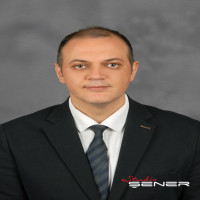



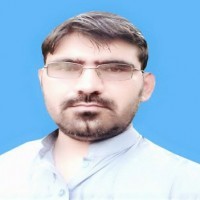
Associate Prof. Dr. Hijaz Ahmad completed his MS in computational mathematics from the Department of Mathematics, COMSATS University Islamabad, Wah Campus. In 2022, he completed his PhD in Computational and Applied Mathematics from the Department of Basic Sciences and Islamiat, University of Engineering and Technology Peshawar, Pakistan and then he started his Post-doc from Lebanese American University, Beirut, Lebanon. His research work is focused on the development and advancement of numerical techniques for finding the numerical solution of mathematical models in the form of partial differential equations and fractional partial differential equations arising in finance, computational biology, and different disciplines of engineering. He has introduced modified variational iteration algorithm-I and modified variational iteration algorithm-II for the numerical solution of nonlinear partial differential equations and fractional iteration algorithm-I for finding the numerical solution of nonlinear non-integer order partial differential equations. The scope of his research is quite broad, covering numerical analysis, fractional calculus, mathematical biology and mathematical physics. Dr Ahmad is included in the World's Top 2% Scientists 2022, 2023 and 2024 (by Stanford University and Elsevier).
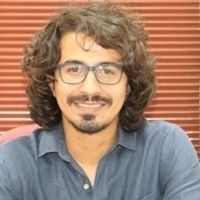
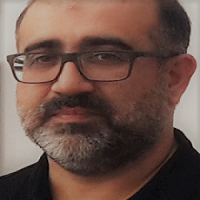
Editorial Board Members
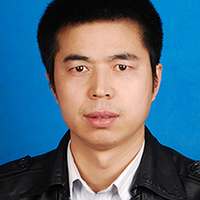
Pubication list: https://www.webofscience.com/wos/author/record/1609312.
Jun Ma received the M.Sc. and Ph.D. degrees from Guangxi Normal Univerisy and Huazhong Normal University for Theoretical Physics,China, in 2003 and 2010, respectively. My current research subjects mainly focus on the topics about pattern selection and control, neuronal network, neurodynamics, memristor, functional neuron models, dynamical control.
Professor Jun Ma has been appointed as Associate editor for Nonlinear Dynamics since 2015. He also serves as an academic editor for PLoS one since July in 2015, and associate editor for Int J Bifurcat Chaos from 2018 to 2023. He is kept as active reviewer for more than 75 international journals indexed in web of science.
The most distinct scientific contribution: 1) A feasible neuron model is proposed to estimate the effect of electromagnetic induction and radiation, and two different mechanism for death and shock in the heart suffered from electromagnetic radiation. 2) A group of functional neuron models are built to detect the temperature, illumination, magnetic field and acoustic wave. 3)He claimed that field coupling accounts for the activation of chemical synapses. 4)He clarified the physical evidences for integral and differential control in dynamical systems. 5)He claimed that the most suitable Lyapunov function should be the sole Hamilton energy function for dynamical systems. 6) A filtering criterion is proposed to explain the biophysical mechanism of frequency selection and wave filtering in auditory and visual neurons.
7)He defined a generic scheme for energy function of memristive maps, and adaptive law is proposed to control mode transition and parameter shift in biophysical neurons. 8)He suggested memristive membrane and neuron models with double capacitive variables for membrane potential of functional neurons.

Herbert H.C. Iu received the B.Eng. (Hons) degree in electrical and electronic engineering from the University of Hong Kong, Hong Kong, in 1997. He received the Ph.D. degree from the Hong Kong Polytechnic University, Hong Kong, in 2000. In 2002, he joined the School of Electrical, Electronic and Computer Engineering, The University of Western Australia as a Lecturer. He is currently a Professor at the same school. His research interests include power electronics, renewable energy, nonlinear dynamics, current sensing techniques, and memristive systems. He has published over 200 papers in these areas. He has won two IET Premium Awards in 2012 and 2014. In 2014, he also won the UWA Vice-Chancellor’s Mid-Career Research Award. He received the 2023 IEEE Transactions on Circuits and Systems Guillemin-Cauer Best Paper Award, 2021 IEEE Journal of Emerging and Selected Topics in Power Electronics Prize Paper Award, 2019 IEEE Transactions on Very Large Scale Integration Systems Prize Paper Award, 2023 IEEE Transaction on Power Electronics Paper Award, and the Best Paper Award of 2019 IEEE International Conference on Artificial Intelligence Circuits and Systems. He served as the Editor-in-Chief for IEEE Journal on Selected and Emerging Topics in Circuits and Systems in 2022-2023. He is now Associate Editor for IEEE Transactions on Power Electronics, and IEEE Journal of Emerging and Selected Topics on Power Electronics. He was appointed as IEEE CASS Distinguished Lecturer for 2023-24. He is a co-editor of Control of Chaos in Nonlinear Circuits and Systems (Singapore: World Scientific, 2009) and a co-author of Development of Memristor Based Circuits (Singapore: World Scientific, 2013).
Bocheng Bao (Senior Member, IEEE) received the B.S. and M.S. degrees in electronic engineering from the University of Electronics Science and Technology of China, Chengdu, China, in 1986 and 1989, respectively, and the Ph.D. degree in information and communication engineering, from the Nanjing University of Science and Technology, Nanjing, China, in 2010.
From 2008 to 2011, he was a Professor with the School of Electrical and Information Engineering, Jiangsu University of Technology, Changzhou, China. Currently, he is a Professor with the School of Microelectronics and Control Engineering, Changzhou University, Changzhou, China. In 2013, he visited the Department of Electrical and Computer Engineering, University of Calgary, Calgary, AB, Canada. His research interests include neuromorphic circuits, power electronic circuits, and nonlinear circuits and systems.
Dr. Bao was a recipient of the IET Premium Award in 2018 and selected as the Highly Cited Researcher 2020, 2021, 2022, and 2023 in Cross-Field.
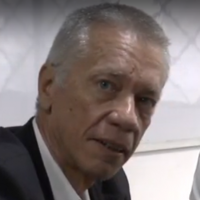
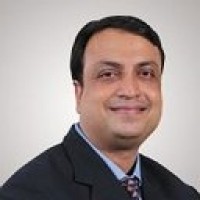
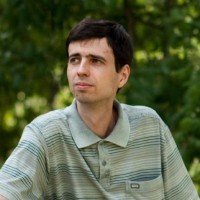
1. The Lesser Prize 2014 of IAPC "Nauka/Interperiodica" for the best publication in its journals (a series of works devoted to the study of solutions of systems of ordinary differential equations on compact sets).
2. Together with the French mathematician René Lozi, a high-precision numerical method was developed for constructing approximations to chaotic motions of dynamical systems with quadratic nonlinearities.
3. A high-precision numerical scheme for finding approximations to unstable cycles of the Lorenz system is proposed.
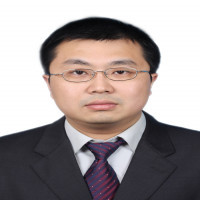
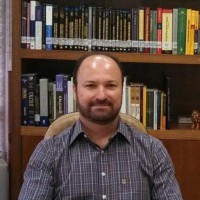
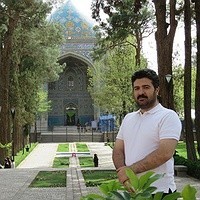
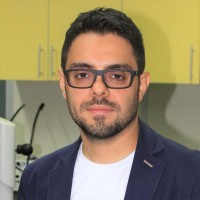
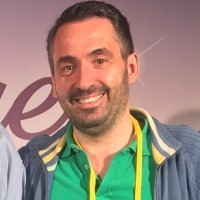
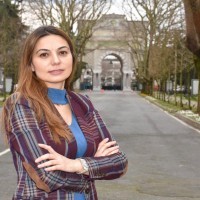
Chaos theory, complexity science, nonlinear dynamics, statistical physics of complex systems, interdisciplinary applications
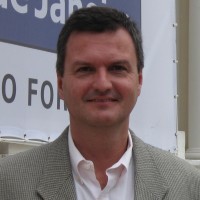
Marcelo A. Savi is Ph.D. in Mechanical Engineering and Professor at Federal University of Rio de Janeiro (COPPE - Mechanical Engineering) being the Head of the Center for Nonlinear Mechanics. He has published over 500 journal and conference papers, 5 books and about 18 book chapters. Awards and distinctions were received including: UFRJ solemn tribute to the most influential researchers in the world (Top 2%) based on PLOS Biology publication; COPPE Award Giulio Massarani of the Academic Merit; CNPq Researcher level 1A; Scientist of Rio de Janeiro. He is actively involved as advisor of graduate and undergraduate students. He has administrative experience as head of department, graduate coordinator, and university committees. He serves as Editor-in-Chief of the Journal of the Brazilian Society of Mechanical Sciences and Engineering (2024-present) and Associate Editor of some journals, where it is important to highlight: International Journal of Mechanical Sciences (2018-present); Journal of Vibration and Control (2017-present); ASME – Journal of Computational and Nonlinear Dynamics (2019-present). Research interests are related to nonlinear mechanics where it should be highlighted smart material and structures; nonlinear dynamics, chaos and control; biomechanics and ecology.


Dr. Perkins has co-authored over 30 journal papers in leading journals and graduated 7 PhD students. He has received two of the most prestigious young faculty awards for his research, with approximately $1.6M of external research awards. His background is in nonlinear dynamics, stochastic dynamics, vibrations, and experimental design. Currently, his research interests include oscillator computers, adaptive oscillators, vibrational energy localization, topology optimization, control of flexible/bio-inspired robotics, and music engineering.

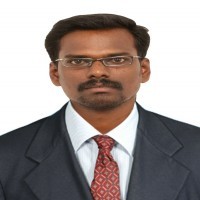
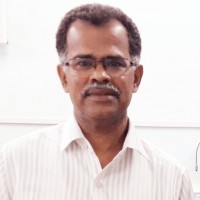
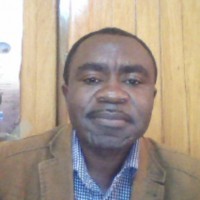
Kengne Jacques was born in Bamougoum, Cameroon, in 1971. He received his M.Sc., and Ph. D. degrees in Electronics in 2007 and 2011 respectively from the Faculty of Sciences/ University of Dschang. From 2010 to 2012, he worked as a lecturer at the Department of Electrical Engineering, IUT-FV/ University of Dschang. From 2012 to 2016 he served as senior Lecturer. In 2016, he was appointed Associate-Professor in the same University. He became full Professor of in November 2021. Prof. Kengne Jacques has authored or co-authored more than 180 journal papers. He also serves as reviewer for renowned international journals including IJBC, Commun Nonlinear Sci. Numer Simulat., Int. Journal of Dynamics and control, Nonlinear Dynamics, Chaos Solitons and Fractals, and IEEE Trans Circuits Systems. His research interest includes nonlinear systems and circuits, chaos, multistability, chaos synchronization with applications. Prof Kengne is an associate editor of Chaos theory and applications.
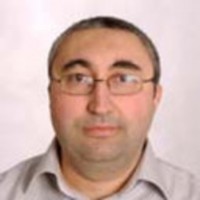
Fatih Kurugollu obtained BSc and MSc in Computer and Control Engineering degrees from Istanbul Technical University, Turkey, in 1989 and 1994, respectively. He was awarded a PhD degree in Computer Science from the same university in 2000. He was employed as a research fellow by the Marmara Research Centre, which is the main governmental research unit of the Turkish Scientific Research Council (TUBITAK) in 1991. He joined the School of Electronics, Electrical Engineering and Computer Science at Queen’s University, Belfast, UK, in 2000, initially as a Post-Doctoral Research Fellow. In 2003, he was appointed to a lectureship at the same department and later on was promoted to Senior Lecturer in Computer Science. He joined University of Derby, UK, as a Professor of Cyber Security in 2016. He has recently been appointed as a full Professor at University of Sharjah, UAE.
His current research interests are centered around AI based Security, Security and Privacy in Internet-of-Things, Security related Multimedia Content Analysis, Big Data in Cyber Security, Homeland Security, Security Issues in Healthcare Systems, Biometrics, Image and Video Analysis.
He has been the principal investigator and co-investigator of several projects funded by EPSRC, Royal Academy Engineering (RAEng), Leverhulme Trust, and Action Medical Research as well as the principal supervisor of several KTP projects funded by Innovate UK. He has supervised 11 PhD projects and he has authored more than 130 publications. He is a Senior Member of IEEE, a member of ACM, a Member of the Associate College of Engineering and Physical Sciences Research Council (EPSRC), and a Fellow of the Higher Education Academy (HEA).
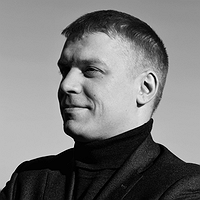
Prof. Denis Butusov is a Head of Computer-Aided Engineering Dept. at the St. Petersburg Electrotechnical University, Russia, where he is also a Head of Youth Research Institute. He has published extensively in nonlinear systems simulation, specifically numerical methods, geometrical integration, memristive circuits, discrete chaotic maps, and a wide variety of applications, including chaotic sensors, nonlinear systems identification, power systems, robotics and chaos-based cryptography. Dr. Butusov and his collaborators are the authors of the controllable symmetry concept in numerical simulations of nonlinear systems. He also serves as Associate Editor for the Journal of Control, Automation and Electrical Systems.
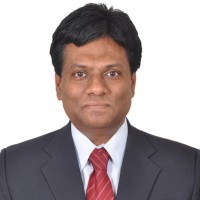
Dr. Sundarapandian is a Senior Professor in the Research and Development Centre at Vel Tech University, Avadi, Chennai, India. He has published over 500 Scopus indexed journal papers, and won national and international awards. He works in Science and Engineering Areas. He is a visiting faculty in many International Universities. He regularly conducts International Workshops in MATLAB, SCILAB, Dynamical Systems, Stability Theory, Data Science, Mathematical Modelling, Scientific Computing, Control Theory, Chaos Theory in International Conferences and International Universities, where he serves as a Visiting Professor.
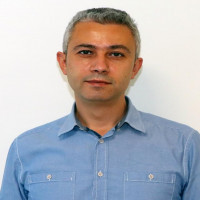





 Web
Web
Electronics, Embedded System Design, Circuits and Systems, Chaos Theory and Chaos-based engineering applications.
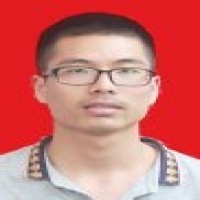
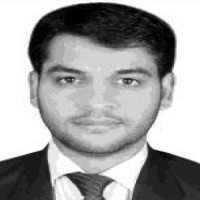
Dr. Iqtadar Hussain is an Associate Professor at Qatar University, Qatar. He holds a Ph.D. in Mathematics with a specialization in Cryptography. His academic and research interests lie primarily in the areas of mathematical cryptography, information security, and related applications. Dr. Hussain is actively involved in teaching, research, and academic service, contributing to the advancement of both theoretical and applied aspects of cryptographic systems.
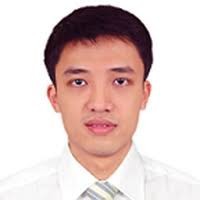
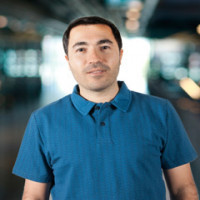
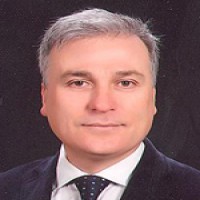

Esteban Tlelo Cuautle received a B.Sc. degree from Instituto Tecnológico de Puebla (ITP) México in 1993. He then received both M.Sc. and Ph.D. degrees from Instituto Nacional de Astrofísica, Óptica y Electrónica (INAOE), México in 1995 and 2000, respectively. During 1995-2000 he was with the electronics-engineering department at ITP. In 2001 he was appointed as Professor-Researcher at INAOE. He has been Visiting Researcher in the department of Electrical Engineering at University of California Riverside, USA (2009-2010), in the department of Computer Science at CINVESTAV, México City, México (2016-2017), and Visiting Lecturer at University of Electronic Science and Technology of China (UESTC, Chengdu 2014-2019). He has authored 5 books, edited 12 books and more than 300 works published in book chapters, international journals and conferences. He is member in the National System for Researchers (SNI-CONACyT-México). He serves as Associate Editor in Fractal and Fractional (2022-2023), International Journal of Circuit Theory and Applications (2021-Present), Electronics (2019-Present), Engineering Applications of Artificial Intelligence (2019-Present), Frontiers of Information Technology and Electronics Engineering (2019-2022), IEEE Transactions on Circuits and Systems I: Regular Papers (2016-2023), Integration the VLSI Journal (2013-Present), IEEE Transactions on Circuits and Systems II: Express Briefs (2014-2015), and PLOS ONE (2018-2021). He has organized special sessions in IEEE conferences (ISCAS’15, LATS’15, MWSCAS’14) and has been Chair and Technical Program Committee member of major conferences on circuits and systems. His research interests include integrated circuit design, optimization by metaheuristics, fractional-order chaotic systems, artificial intelligence, security in Internet of Things, and analog/RF and mixed-signal design automation tools.
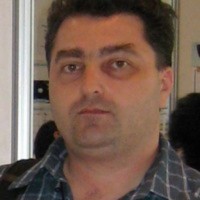
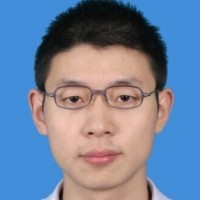
Dr. Zhouchao Wei is currently a full Professor at China University of Geosciences (Wuhan). He received his BSc degree in Applied Mathematics in 2006. In 2011, he received a PhD degree in Applied Mathematics from South China University of Technology. He joined the College of Mechanical Engineering of Beijing University of Technology in 2014 as a Postdoctoral Fellow, and the Faculty of Mechanical Engineering, Technical University of Lodz in Poland in 2015 as a Visiting Researcher. He has also been as a Visiting scholar at the Mathematical Institute, University of Oxford, UK, between 2016 and 2017. His current research interests include the qualitative theory of differential equations, chaos and bifurcation theory. He has been supported by several National Natural Science Funds and has published more than 50 relevant academic papers in SCOPUS-indexed journals. He has been supported by four National Natural Science Funds and the Young Top-notch Talent Cultivation Program of Hubei Province. He was selected into the "Elsevier list of highly cited scholars in China" and "highly cited scientists" by the web of science and clarivate analytics.


Nonlinear Dynamical Systems, Chaos Theory, Control Theory, Fractal
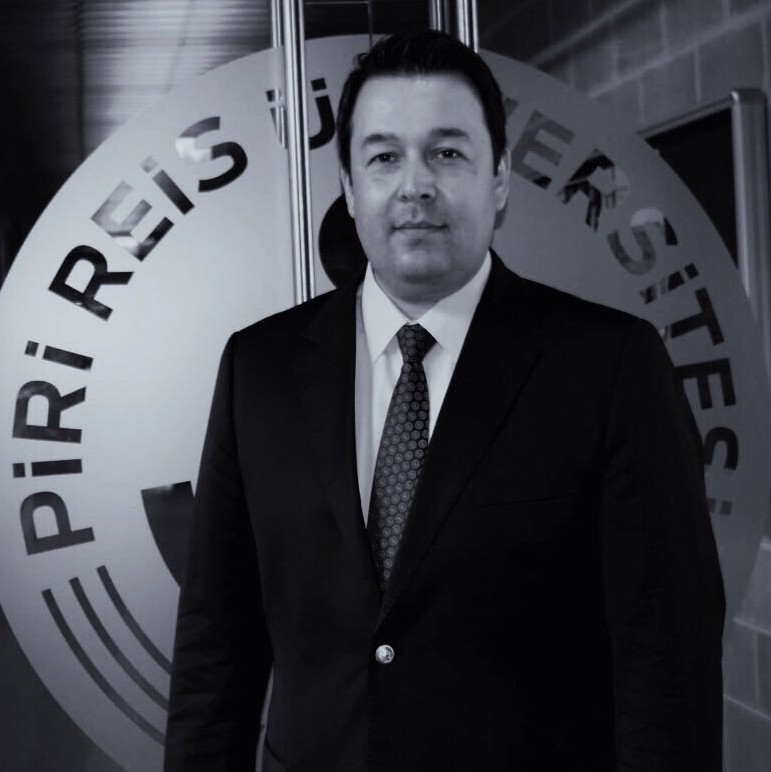
Dr. Orhan Ozgur Aybar currently works Deputy Director of Piri Reis University Institute of Graduate Education. Most recently, Dr. Aybar held the position of Director of Continuing Education Center (PUSEM), Director of Institute of Graduate Studies at Piri Reis University and Director of Information Technology. He does research in Applied Mathematics and Computational Science, Natural Science, Engineering and Medicine, Programming Languages, Applied Mathematics, Computational Physics, Condensed Matter Physics, Mathematical Physics
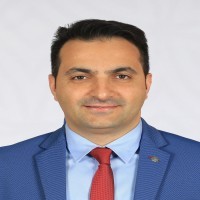


Suo Gao received his Ph.D. degree in Computer Science and Technology from Harbin Institute of Technology, China, in 2024. He is currently an Associate Professor at the School of Information Science and Engineering, Dalian Polytechnic University, China. His research interests include machine learning, image encryption, cryptography, and memristors. He has published over 50 SCI indexed papers and more than 3000 citations. Notably, 10 of his papers have been recognized as ESI Hot Papers and Highly Cited Papers. In 2024 and 2025, he was listed among the World’s Top 2% Scientists.
Editorial Advisory Board Members
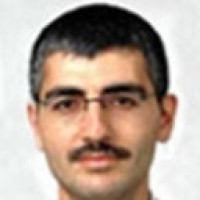
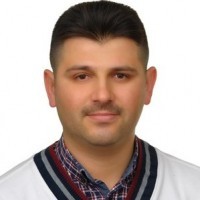
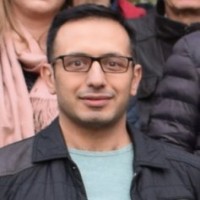
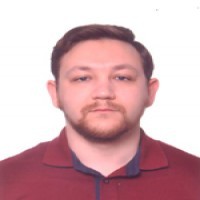
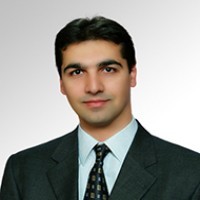
Uğur Erkin KOCAMAZ was born at Yeşilyurt town of Malatya in 1979. He completed his primary and secondary educations at Sakarya Büyükgazi Primary School and Sakarya Anatolian High School, respectively. He started his high school education in Kocaeli Körfez Science High School, and completed it in Sakarya Atatürk High School. He started to Dokuz Eylül University Computer Engineering department in 1996 and graduated in 2001, in which he also received 1 year English preparatory education. He completed his M.Sc. in Computer and Information Engineering department at Sakarya University in 2004, his Ph.D. in Electrical & Electronics Engineering department (in Electronics) at Sakarya University in 2018, and his Ph.D. in Computer and Information Engineering department at Sakarya University in 2024. In December 2003, he started his work career as a Research Assistant in Institute of Science at Sakarya University. In December 2012, he passed to Karacabey Vocational School at Uludağ University as a Lecturer. Then, he became Assist. Prof. Dr. in August 2022 at the same institution. He is still working at there. He is scientifically studying in the fields of data structures and algorithms, artificial intelligence, neural networks, fuzzy logic, neuro-fuzzy, chaotic systems, chaos control, synchronization and chaotic secure communication. He has many publications in the international journals and conferences. He is single. His hobbies are travelling, listening music, watching movies, painting, playing basketball and table tennis.
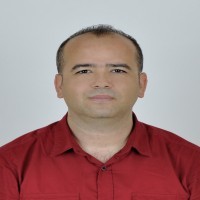
Erdinç Avaroğlu was born in Adana, Turkey, in 1979. He received his M.S degree Electrical Electronics Engineering from İnönü University, Malatya Turkey in 2005 and 2007, and Ph.D. degrees Electrical Electronics Engineering from Firat University, Elazig Turkey in 2009 and 2014. Since 2016, he is associate professor in Computer Engineering at Mersin University. His research interests are Cryptology, Random Number Generators, Istatistical Tests, Chaos and Information Security
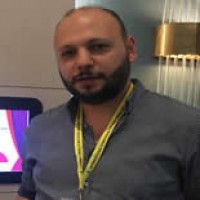
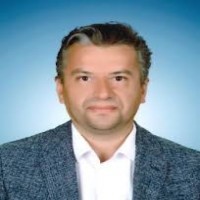
Doç. Dr. Hakan Kör:
Doğum Yeri ve Yılı: 1981, İskilip
Eğitim:
Anadolu Üniversitesi, Porsuk MYO, Bilgisayar Programcılığı (2002)
Balıkesir Üniversitesi, Necatibey Eğitim Fakültesi, Bilgisayar ve Öğretim Teknolojileri (2006)
Kırıkkale Üniversitesi Fen Bilimleri Enstitüsü, Bilgisayar Mühendisliği Yüksek Lisans (2013)
Kırıkkale Üniversitesi Fen Bilimleri Enstitüsü, Bilgisayar Mühendisliği Doktora (2017)
Kariyer:
MEB Bilişim Teknolojileri Öğretmenliği (2006-2009)
Hitit Üniversitesi Sungurlu MYO Öğretim Görevlisi (2009'dan itibaren)
Sungurlu MYO Müdür Yardımcılığı (2012-2014)
Hitit Üniversitesi Uzaktan Eğitim Merkezi Müdür Yardımcılığı (2014-2016)
Şu anda Hitit Üniversitesi Mühendislik Fakültesi Bilgisayar Mühendisliği Bölümü'nde Doçent olarak görev yapmakta.
Çalışma Alanları:
Veri Madenciliği
Karar Ağaçları Algoritmaları
Büyük Veri ve Analizi
Bulut Bilişim
Yaşam Boyu Öğrenme
Liderlik
Uzaktan Eğitim
Diğer Bilgiler:
İngilizce biliyor
Evli ve iki çocuk babası
Managing Editor

Dr. Akif AKGUL was born in Izmir, Turkey. Dr. AKGUL received his B.S. degree in Electronics-Computer Education from Kocaeli University in 2009 and in Electrical-Electronics Engineering from Sakarya University in 2013, M.S. and Ph.D. degrees from Sakarya University in 2011 and 2015, respectively, in Electronics-Computer Education and Electrical-Electronics Engineering. His Ph.D. thesis work was on chaos-based cryptology. He has been to The Institute of Electronics, Communications and Information Technology (ECIT) of Queen's University Belfast, United Kingdom in 2015 as a Visiting Researcher. His current research interests include random number generators, cryptology, data hiding, blockchain, IoRT, chaos-based engineering applications. Currently, he is Associate Professor at the Department of Computer Engineering, Faculty of Engineering, Hitit University, Turkey, where he has been involved in projects concerning the study of chaos-based applications.
Language Editors

Muhammed Maruf Öztürk is currently an Associate Professor at Computer Engineering Department of Engineering Faculty at Suleyman Demirel University. He received his Ph.D. degree in Computer Engineering from Sakarya University. His main interests lie in artificial intelligence in software testing, energy-aware software systems, effort estimation, and hyperparameter optimization. He published several papers coping with software engineering problems.



 Web
Web
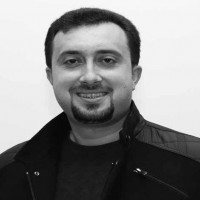
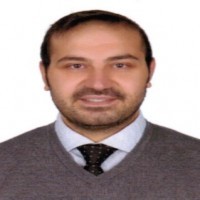
Technical Coordinator
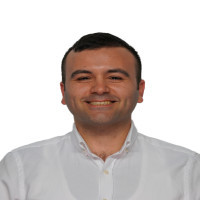
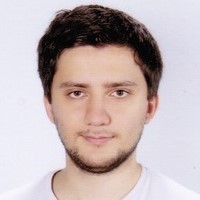
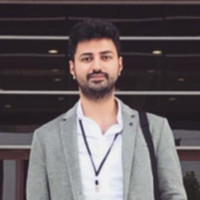
Chaos Theory and Applications in Applied Sciences and Engineering: An interdisciplinary journal of nonlinear science
The published articles in CHTA are licensed under a Creative Commons Attribution-NonCommercial 4.0 International License
